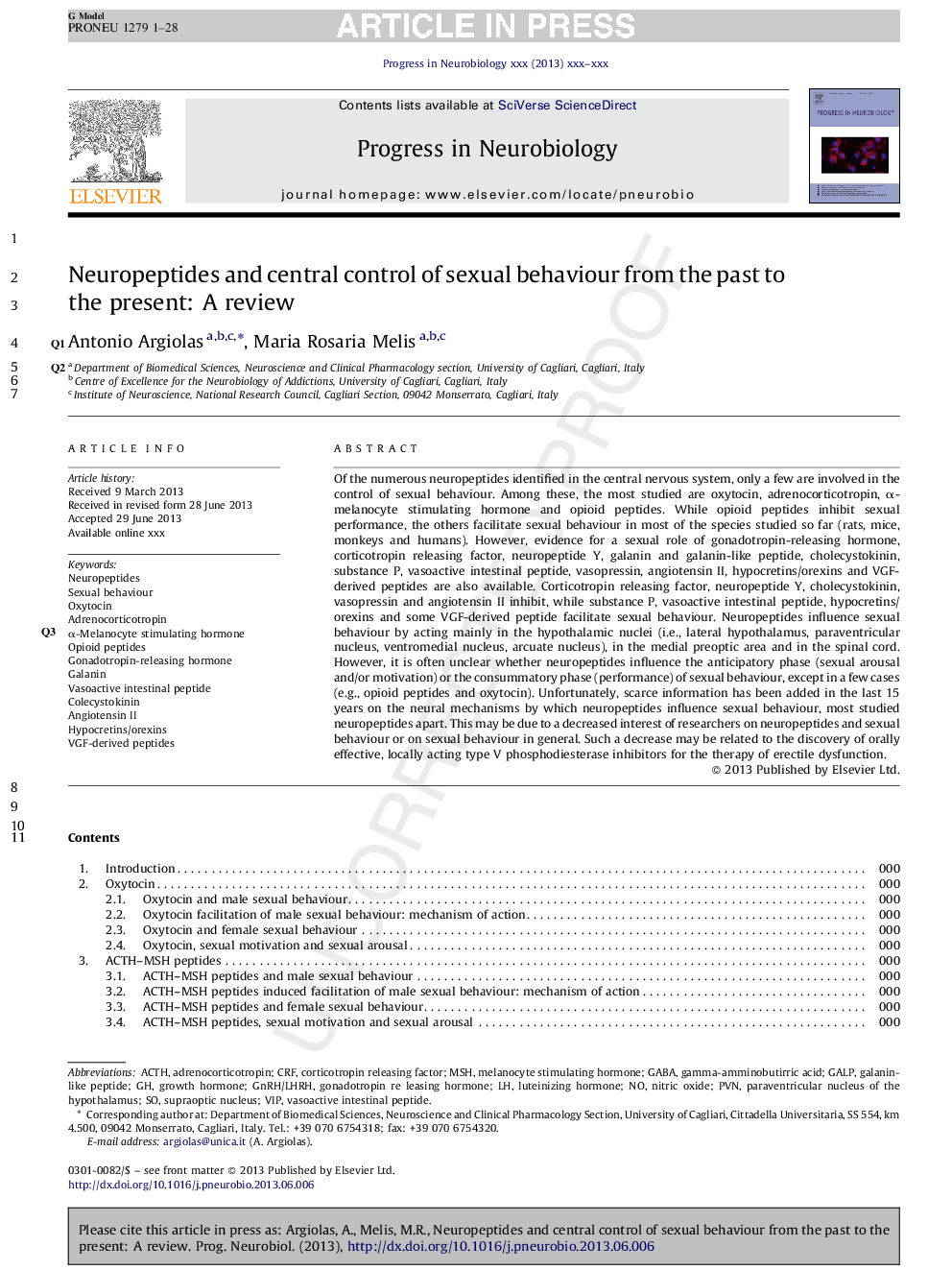| Article ID | Journal | Published Year | Pages | File Type |
|---|---|---|---|---|
| 6286549 | Progress in Neurobiology | 2013 | 28 Pages |
Abstract
Of the numerous neuropeptides identified in the central nervous system, only a few are involved in the control of sexual behaviour. Among these, the most studied are oxytocin, adrenocorticotropin, α-melanocyte stimulating hormone and opioid peptides. While opioid peptides inhibit sexual performance, the others facilitate sexual behaviour in most of the species studied so far (rats, mice, monkeys and humans). However, evidence for a sexual role of gonadotropin-releasing hormone, corticotropin releasing factor, neuropeptide Y, galanin and galanin-like peptide, cholecystokinin, substance P, vasoactive intestinal peptide, vasopressin, angiotensin II, hypocretins/orexins and VGF-derived peptides are also available. Corticotropin releasing factor, neuropeptide Y, cholecystokinin, vasopressin and angiotensin II inhibit, while substance P, vasoactive intestinal peptide, hypocretins/orexins and some VGF-derived peptide facilitate sexual behaviour. Neuropeptides influence sexual behaviour by acting mainly in the hypothalamic nuclei (i.e., lateral hypothalamus, paraventricular nucleus, ventromedial nucleus, arcuate nucleus), in the medial preoptic area and in the spinal cord. However, it is often unclear whether neuropeptides influence the anticipatory phase (sexual arousal and/or motivation) or the consummatory phase (performance) of sexual behaviour, except in a few cases (e.g., opioid peptides and oxytocin). Unfortunately, scarce information has been added in the last 15 years on the neural mechanisms by which neuropeptides influence sexual behaviour, most studied neuropeptides apart. This may be due to a decreased interest of researchers on neuropeptides and sexual behaviour or on sexual behaviour in general. Such a decrease may be related to the discovery of orally effective, locally acting type V phosphodiesterase inhibitors for the therapy of erectile dysfunction.
Keywords
ACTHMSHGALPVIPCRFadrenocorticotropinoxytocinSexual behaviourcorticotropin releasing factorPVNPenile erectionNeuropeptidesNitric oxideSupraoptic nucleusparaventricular nucleus of the hypothalamusgonadotropin releasing hormonemelanocyte stimulating hormoneluteinizing hormoneGrowth hormonevasoactive intestinal peptidegalanin-like peptideOpioid peptidesGABA
Related Topics
Life Sciences
Neuroscience
Neuroscience (General)
Authors
Antonio Argiolas, Maria Rosaria Melis,
